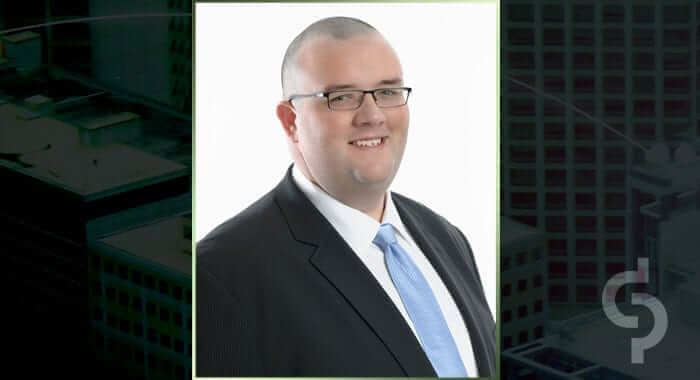The CARES Act established a $100 billion Provider Relief Fund to help healthcare providers combat the COVID-19 outbreak. The fund was broken down into several categories, with $50 billion going to a General Distribution Provider Relief Fund and the remaining $50 billion to be used for targeted distributions, such as to rural health clinics and Medicaid & CHIP providers.
These funds are now accessible to Medicaid providers who have not yet received COVID-related relief funding from HHS yet. HHS has stated that via the Medicare or the Medicaid Provider Relief Funds, a provider should expect to receive an amount up to 2% of their revenue per their 2018 tax return (or 2019 return if already filed).
Medicaid Providers who did not bill Medicare in 2018-2019:
Providers who billed Medicaid FFS or a Medicaid managed care plan between January 2018 and June 2020, and who did not bill Medicare, are eligible and should go to the HHS Medicaid and CHIP Provider Relief portal to submit provider information. Providers have until July 20, 2020 to apply. In conjunction with the application, providers must accept certain terms and conditions that are substantially similar to the Medicare General Distribution Fund. If the provider does not return the funds within 90 days of receipt, it is assumed that the providers agree to and accepts the following terms and conditions:
- The Recipient certifies that it provides, or provided, after January 31, 2020 diagnoses, testing, or care for individuals with possible or actual cases of COVID-19. According to the FAQ’s provided with the application, HHS broadly views every patient as a possible case of COVID-19.
- The Recipient certifies that it is currently not terminated from participation in Medicare or precluded from receiving payment through Medicare Advantage or Part D; is not currently excluded from participation in Medicare, Medicaid, and other Federal health care programs; and does not currently have Medicare billing privileges revoked.
- The Recipient certifies that the Payment will only be used to prevent, prepare for, and respond to coronavirus, and that the Payment shall reimburse the Recipient only for health care related expenses or lost revenues that are attributable to coronavirus. The term “healthcare related expenses attributable to coronavirus” is a broad term that may cover a range of items and services purchased to prevent, prepare for, and respond to coronavirus, including:
- supplies used to provide healthcare services for possible or actual COVID-19 patients;
- equipment used to provide healthcare services for possible or actual COVID-19 patients;
- workforce training;
- developing and staffing emergency operation centers;
- reporting COVID-19 test results to federal, state, or local governments;
- building or constructing temporary structures to expand capacity for COVID-19 patient care or to provide healthcare services to non-COVID-19 patients in a separate area from where COVID-19 patients are being treated; and
- acquiring additional resources, including facilities, equipment, supplies, healthcare practices, staffing, and technology to expand or preserve care delivery.
The term “lost revenues that are attributable to coronavirus” means any revenue that you as a healthcare provider lost due to coronavirus. This may include revenue losses associated with fewer outpatient visits, canceled elective procedures or services, or increased uncompensated care. Providers can use Provider Relief Fund payments to cover any cost that the lost revenue otherwise would have covered, so long as that cost prevents, prepares for, or responds to coronavirus. Thus, these costs do not need to be specific to providing care for possible or actual coronavirus patients, but the lost revenue that the Provider Relief Fund payment covers must have been lost due to coronavirus. Lost revenue is calculated based upon your operations for March and April 2020. Lost revenue can be calculated by comparing to the prior year or based upon a budget that was established prior to the pandemic.
- The Recipient certifies that it will not use the Payment to reimburse expenses or losses that have been reimbursed from other sources or that other sources are obligated to reimburse. This includes normal payments for services rendered as well as any forgiveness on PPP loans received by the Recipient.
- The Recipient shall submit reports as the Secretary determines are needed to ensure compliance with conditions that are imposed on this Payment, and such reports shall be in such form, with such content, as specified by the Secretary in future program instructions directed to all Recipients. Per the instructions to the application, these documents include:
- The applicant’s most recent federal income tax return for 2017, 2018 or 2019 or a written statement explaining why the applicant is exempt from filing a federal income tax return (e.g. a state-owned hospital or healthcare clinic).
- The applicant’s Employer’s Quarterly Federal Tax Return on IRS Form 941 for Q1 2020, Employer’s Annual Federal Unemployment (FUTA) Tax Return on IRS Form 940, or a statement explaining why the applicant is not required to submit either form (e.g. no employees or covered under a PEO).
- The applicant’s FTE Worksheet, provided by HHS and downloadable here.
- If required by Field 15, the Gross Revenue Worksheet, provided by HHS and downloadable here.
Failure by a provider that received a payment from the Provider Relief Fund to comply with any term or condition can subject the provider to recoupment of some or all of the payment. Per the Terms and Conditions, all recipients will be required to submit documents to substantiate that these funds were used for increased healthcare-related expenses or lost revenue attributable to coronavirus, and that those expenses or losses were not reimbursed from other sources and other sources were not obligated to reimburse them. HHS will have significant anti-fraud monitoring of the funds distributed, and the Office of Inspector General will provide oversight as required in the CARES Act to ensure that Federal dollars are used appropriately.
For more information on this program, providers can view the following documents:

Edward McWilliams, CPA
Partner
Ed is a Partner in the firm’s tax and business advisory practice focusing on providing services to middle market private companies across different industries as well as to early stage startups. Ed has over a decade of experience providing tax and business consulting services to these companies of different sizes and across different industries, bringing a broad and diverse knowledge base and strategic solutions to the many complex issues that businesses face.





